Once your baby becomes a toddler and starts eating meals and snacks like the rest of the family, dinnertime can sometimes become a bit of a battle. What do you do when they turn their nose up at everything you put in front of them? It might help to try following the tips and tricks of other parents and professionals who have come before you.
Top tips for tempting fussy eaters
Tip #1: Keep letting them try

Even if your toddler hasn't liked something the first time, it doesn't mean they won't after a few more goes. They may get more interested over time. Try saying "well done" or give them a high five every time they try it again.
Tip #2: Give them something new on the side

Giving your child something new to go along with their main meal is a great way to get them to try new things. And, they’ll be much happier knowing they don’t have to miss out on a tea they already love.
Tip #3: Turn mealtimes into fun times
Trying new foods can be exciting, but also a bit daunting at times. Make sure you let your wee one know that they can play with their food at family meals, and that it is ok to get a bit messy! You might find this makes them much happier to try new things.
Tip #4: Keep things simple
It’s easy for a toddler to feel overwhelmed by what’s on their plate. A great tip is to keep things nice and simple. Try sticking to two things, like mash and peas, for a smooth, tantrum-free teatime.
Tip #5: Feed them finger food
Finger food is a great way to get a toddler to feel more grown up. Fill little bowls with chopped veg, toast soldiers and cubes of cheese, so they can mix and match flavours.
Tip #6: Let them pick
We all find mealtimes more fun when we’ve picked out our favourite foods. Letting your child choose between two veggies makes things much more exciting for them. It’s also a great distraction when you need to get on with the rest of your weekly food shop.
Tip #7: Make it a game
Healthy eating might not seem like the most exciting thing in the world, but it can be made fun. Show your toddler how you can put a pea on your tongue and make it “disappear!”. Your toddler will soon want to try it, and before long you’ll be watching them make a whole bowl of peas vanish.
Tip #8: Keep those munchies away
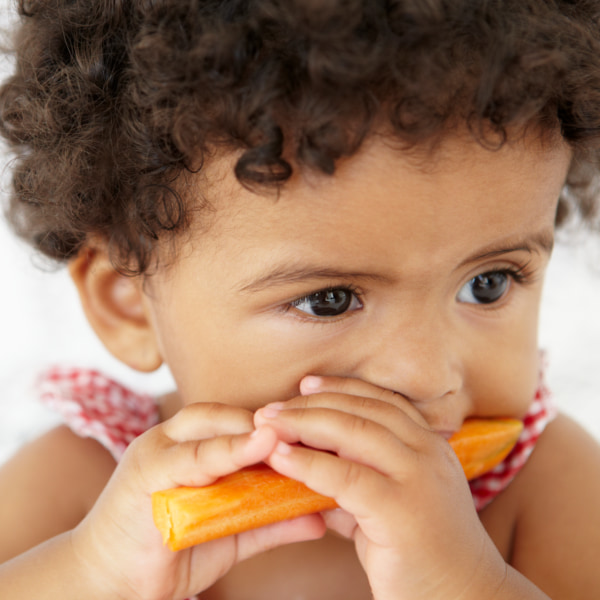
We can all get a little grumpy when we’re hungry. Add new foods into the mix, and it’s a recipe for disaster. Stay clear of any pre-dinner tantrums by slicing up some fruit and veg to keep them going while they wait.
Tip #9: Show them what a star they are
Why not make your child feel really special for trying something new? Make them their very own star chart, and give them a shiny gold star every time they’re brave enough to try something new.
Tip #10: Get them involved in food shopping and preparation
The more you get your wee one involved in the preparation of their food, the more likely they’ll be to actually eat it. There are lots of ways you can get them on board.
- Chat to them when you’re making your shopping list – for example, you could ask them if you should buy peas or beans, or sweetcorn or carrots.
- When you’re out shopping, ask them to point out different things to you, or ask them to choose between different fruit and veg. Our page on tips for going shopping with your toddler has lots more tips for keeping them busy when you’re shopping.
- When you’re preparing meals, you can get them to mix things, wash fruit and vegetables, show them how to measure ingredients, or help you to put toppings onto a wrap or pizza. Our page on cooking with the kids has more tips.
Tip #11: Check out the Simply Veg website
If you’re struggling to get your wee one to eat vegetables you’re not alone! The Simply Veg website has lots of tips to help boost your toddler’s veggie intake. It also has advice on feeding children who are neurodiverse or have sensitivities around food.
What the professionals say
“We all have days when we don’t fancy what’s on our plate, and toddlers are no different. Sit down with them, offer small amounts of food, and if they use their fingers and get a bit messy, don’t panic. Remember, fingers were invented before knives and forks! Your toddler will have their moments, but most tots grow well – even those who don’t seem to eat everything. Don’t forget you can always ask for help from your health visitor.”
What the parents say
"Try offering children a range of food from a very young age and to not force them to eat something they don’t like."
"Keep putting things on your kids’ plates even if they don’t like it so they can get used to it and eventually they’ll be more likely to pick it up."
"My daughter will not eat certain vegetables when they are on her plate so I will blend them into things like homemade soup and casseroles and even though she’s not sure about them on their own, she enjoys eating them in these sorts of dishes."
“If they won’t eat a veg at mealtimes try and compromise by offering a piece of fruit for dessert."
“I like making funny faces with different foods on the plate to encourage them to try something different.”
“I've found that the old adage of repetition was really helpful in getting my kids to not be fussy. Whilst I had them eating all sorts off my plate when very tiny, once they hit about age 2 they each refused all but the most basic things. I continued to present the same foods, speckled through the overall menu plan in many different ways over a long time frame and asking that they try them each time. The older ones are now very adventurous with food. The little one is still a work in progress but showing huge improvements.”
What should I do if I’m worried?
It can be frustrating if your toddler refuses most of the food you put in front of them, and you may start worrying that they’re not getting enough to eat. But it’s important to remember that fussy eating is a really normal part of growing up for toddlers – lots of toddlers are reluctant to try new foods, or will suddenly reject things they’ve been eating perfectly happily before.
Try not to worry about how much they eat in a day – instead try to think about what they eat over a week, and you may well find it’s more than you think. You could even try keeping a food diary, to keep track of what you’ve offered them and what they’ve eaten.
But if you’ve tried every trick in the book and you still don’t feel that your toddler is eating enough, or you’re worried that they’re not getting enough variety in their diet, remember you can always talk to your health visitor or GP. Your food diary will be useful here as it’ll give health visitor or GP a good insight into how much your wee one is eating.
 Activities & Play
Activities & Play Behaviour
Behaviour Childcare
Childcare Development & Growing Up
Development & Growing Up Family, Friends & Relationships
Family, Friends & Relationships Feeding Your Baby
Feeding Your Baby Food & Eating
Food & Eating Health & Safety
Health & Safety Mental Health & Wellbeing
Mental Health & Wellbeing Money & Work
Money & Work Online Behaviour & Safety
Online Behaviour & Safety Pregnancy & First Days
Pregnancy & First Days School & Education
School & Education Sleep
Sleep



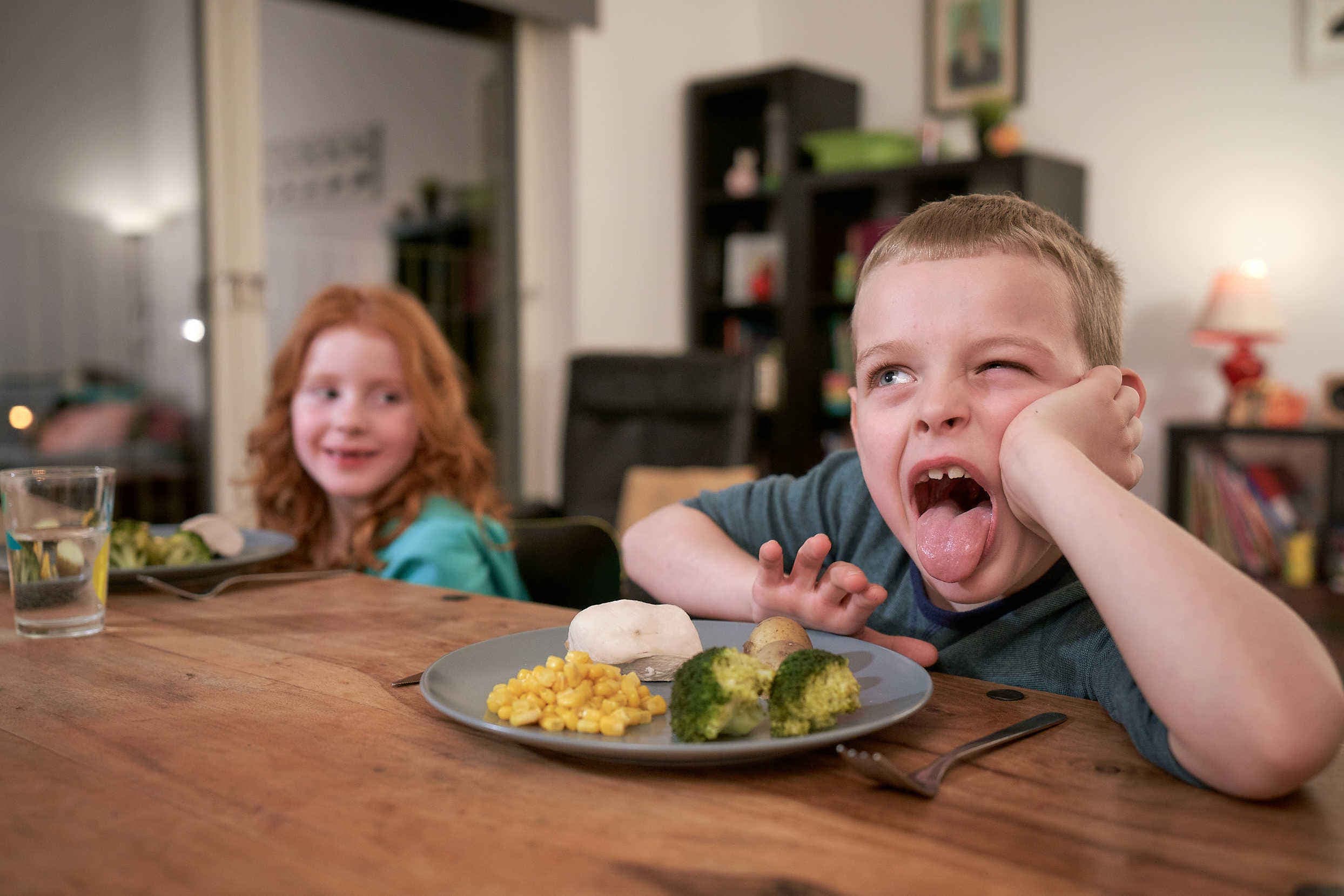
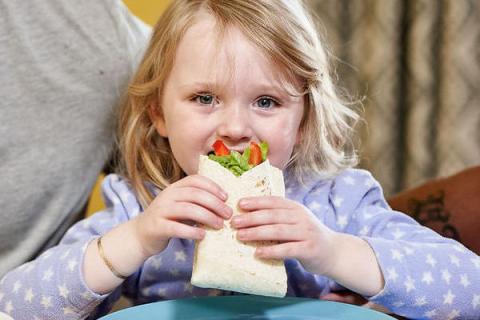
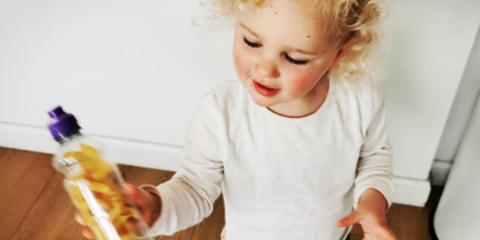

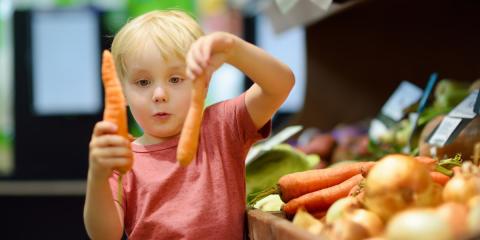

 Behaviour
Behaviour
 Activities & Play
Activities & Play